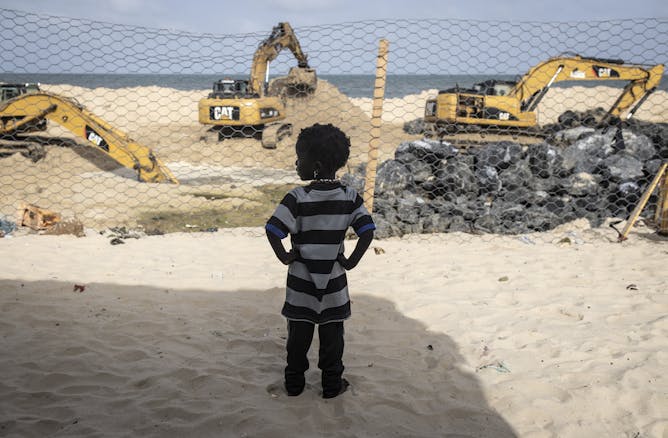|
As is ever the case in big elections, much of the analysis following the US midterms has centred on national figures and parties: who do the results bode well for? Which side has made advances? Who won?
Given the tension, and personalities, at the heart of US politics, these are not unreasonable questions. People around the world seek answers to them as they try to chart the course the world’s most powerful country will take in the years ahead. Reaction from academic authors across our network can be followed here. But I’ve chosen to lead today’s newsletter on an article that focusses on one specific issue: abortion rights.
Access to abortion was directly voted on in a number of states, and voters delivered a strong message following the Supreme Court’s Dobbs ruling that returned the issue of abortion access back to “the people” and the states. Linda C McClain and Nicole Huberfeld of Boston University consider what this week’s results in those votes, and in the elections more broadly, mean for women across America.
Elsewhere, our extensive coverage of the COP27 climate conference in Egypt continues, with an assessment of to what degree industrialised countries are responsible for climate change. And we carry a range of articles, as part of our “social media and society” theme, tied to Elon Musk’s takeover of Twitter.
|

Voters in Michigan said ‘yes’ to Prop 3, a ballot protecting abortion rights.
Brandon Bell/Getty Images
Linda C. McClain, Boston University; Nicole Huberfeld, Boston University
Abortion rights were on the ballot in five states during the midterm elections – all broke in favor of abortion-rights advocates.
|

In Saint-Louis (Senegal), in August 2021, a little girl observes the construction of a dyke against rising water levels due to global warming.
John Wessels/AFP
Michel Damian, Université Grenoble Alpes (UGA); Patrick Criqui, Université Grenoble Alpes (UGA)
The promise of US$100 billion a year for North-South solidarity is now a source of frustration for developing countries.
|
|
|
-
Todd L Capson, Institut de physique du globe de Paris (IPGP); Marie Boye, Institut de physique du globe de Paris (IPGP)
There is only a single mooring managed by French researchers that monitors the impacts of climate change on West African Canary Current.
|
|

Sarah Glozer, University of Bath; Emily Jane Godwin, University of Bath; Rita Mota, ESADE
Moderating content is a box that still needs to be ticked.
|
|
|
-
Timothy Graham, Queensland University of Technology
Users will be able to ‘buy’ a verification badge on Twitter for just US$8. This will have widespread consequences.
-
Stephan Lewandowsky, The University of Western Australia; Lisa Oswald, Hertie School; Philipp Lorenz-Spreen, Max Planck Institute for Human Development; Ralph Hertwig, Max Planck Institute for Human Development
The internet has been heralded as liberation technology and accused of undermining democracy. The available research shows it is a bit of both.
-
Stefan Szymanski, University of Michigan
As the ball that Maradona’s fist helped on its way to the back of the net – with some divine help – goes up for auction, a scholar of soccer explains why that goal means so much.
-
Alessandro Siani, University of Portsmouth
Paradoxically, despite the success of COVID vaccination campaigns, confidence in vaccines has dropped significantly since the onset of the pandemic.
-
Andi Hoxhaj, UCL
European leaders have failed to notice how much support Serbia is providing to Russia, an expert says.
|
|